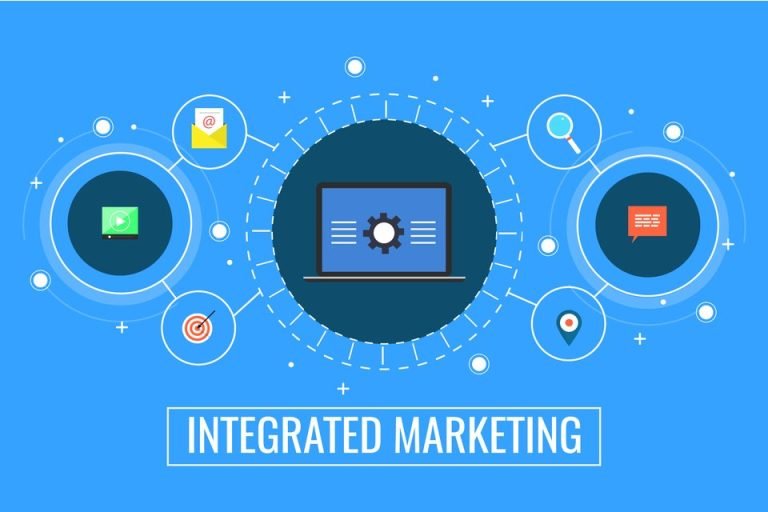Salesforce is a cloud-based software provider that offers its clients a platform to create custom applications without having to go through the challenging stages required by traditional systems. Once developed, the software or application can be uploaded to the cloud so that users can view it.
On the other hand, if we can describe Salesforce Marketing Cloud in simple words, it connects discrete interactions, from any channel, on the customer’s terms. It unites customer data with customer behaviors in real time to create more intelligent communications and interactions that respond to and anticipate customer needs.
Data management, segmentation, and campaign management features from Salesforce are combined with the digital marketing capabilities of Marketing Cloud through Marketing Cloud Connect. With the capacity to automate the customer journey and more data-driven, tailored discussions, create unified customer connections.
We can integrate the Salesforce org with Marketing Cloud by following the required steps which are mentioned under Marketing Cloud connect setup doc.
We must integrate the Marketing Cloud user with your Salesforce user in order to use Salesforce data within Marketing Cloud. You ought to be able to use Salesforce data (Salesforce Data Events within Journey Builder, Send to Salesforce Reports, Send to Salesforce Campaigns, etc.) without any problems once the stages have been finished.
Is Marketing Cloud part of the Customer Success Platform?
A customer success platform is often enforced by software that provides a consolidated, 360-degree picture of all of your customer data that has been combined and pulled from other applications like email, CRM administrations, live chat, customer service tickets, and others. Top features of customer success platform programs include, but are not limited to, client well-being scoring, item utilization tracking, whole client profiles, work process automation, and continual pieces of knowledge. It provides a number of methods to make sure that customers get the best results possible when employing a vendor’s product or service. Internal customer success, service, and marketing teams can better understand overall customer healthy accounts by using these technologies to track customer behavior and assessment.
Utilizing customer success software helps firms identify clients who should be contacted for specific campaigns. This kind of software can assist you by decreasing client beat rates, increasing customer engagement and maintenance, identifying upsell and cross-sell chances, and identifying customer champions that boost income. Eventually, it will help organizations ensure that their clients achieve the optimal results they require by proactively understanding and assisting clients.
A key element of the Salesforce Customer Success Platform is the Marketing Cloud. It functions in conjunction with the Sales Cloud, Service Cloud, Community Cloud, Analytics Cloud, and App Cloud to complete the Customer Success Platform. The 1-to-1 customer journey continues to be a fluid experience throughout your departments, assuring your capacity to foresee needs and facilitate the success of your consumers.
Data is not just collected, but also made immediately actionable through Marketing Cloud. Journey Builder, which enables marketers to organize, personalize, and optimize consumer journeys across channels, makes this feasible that’s why Marketing Cloud is unique compared to other Clouds.
SEE COLLABORATION BETWEEN MARKETING, SALES, AND SERVICE CLOUDS
What makes Salesforce Marketing Cloud different from other clouds?
The 1-to-1 customer journey spanning marketing, sales, and service across all connected devices on every channel is the main focus of Marketing Cloud. By integrating interactions from anywhere and combining consumer data and behavior, you can create relevant communications that are delivered in real-time and on your customers’ terms.
For example- We can update the customer data from Marketing Cloud on a real-time basis in Salesforce through Sales and Service Cloud Activities. As can be seen in the image, a single journey can be used to update leads as well as contacts in Salescloud based on the attributes of the subscribers being injected in the journey and the decisions that they take during the run-time of the journey.

How does Salesforce Marketing Cloud differ from traditional marketing automation tactics?
Many businesses are not providing their customers with data-driven interactions and experiences. Instead, these organizations engage with their consumers through a number of unrelated, stand-alone campaigns and messages. These campaigns and messages frequently span several organizational departments and are not coordinated, data-driven, or fully intentional.
In this scenario, we can consider Sales and Service Cloud Activities in Journey Builder wherein we can provide customers’ real-time data updates from Marketing Cloud to the Salesforce Platform (shown in the image above).
Does Salesforce use Marketing Cloud for any of its own marketing campaigns?
Salesforce employs Marketing Cloud technologies to produce outstanding outcomes across all business operations. With Marketing Cloud, hiring and on boarding of new employees is automated. In addition to joining up with Sales Cloud and Service Cloud to convey event messaging across all channels, Marketing Cloud also offers sales teams enablement resources and competitive data. Salesforce also makes use of Marketing Cloud to build new customer relationships through targeted messaging, scalable support, and product awareness. We can carry out different multiple email campaign journeys to target a specific audience on a regular basis. Additionally, we can carry out the other journey wherein we can try to engage the customers` who have not been actively engaging in emails in order to get them to the Marketing cloud.
Salesforce’s cross-channel social media strategy and online advertising efforts are powered by Marketing Cloud.
To know more about how Marketing Cloud Integration works with Salesforce.
Send us an email on [email protected] or book a demo.




